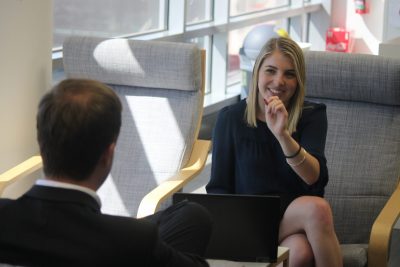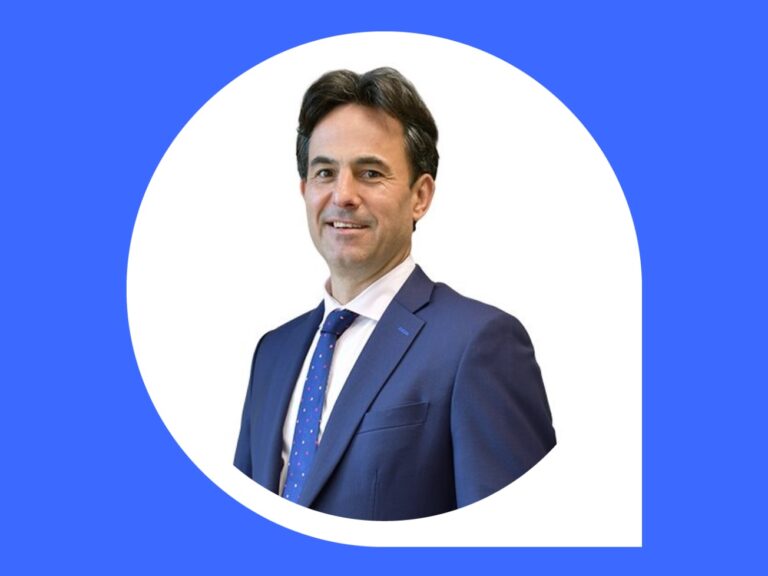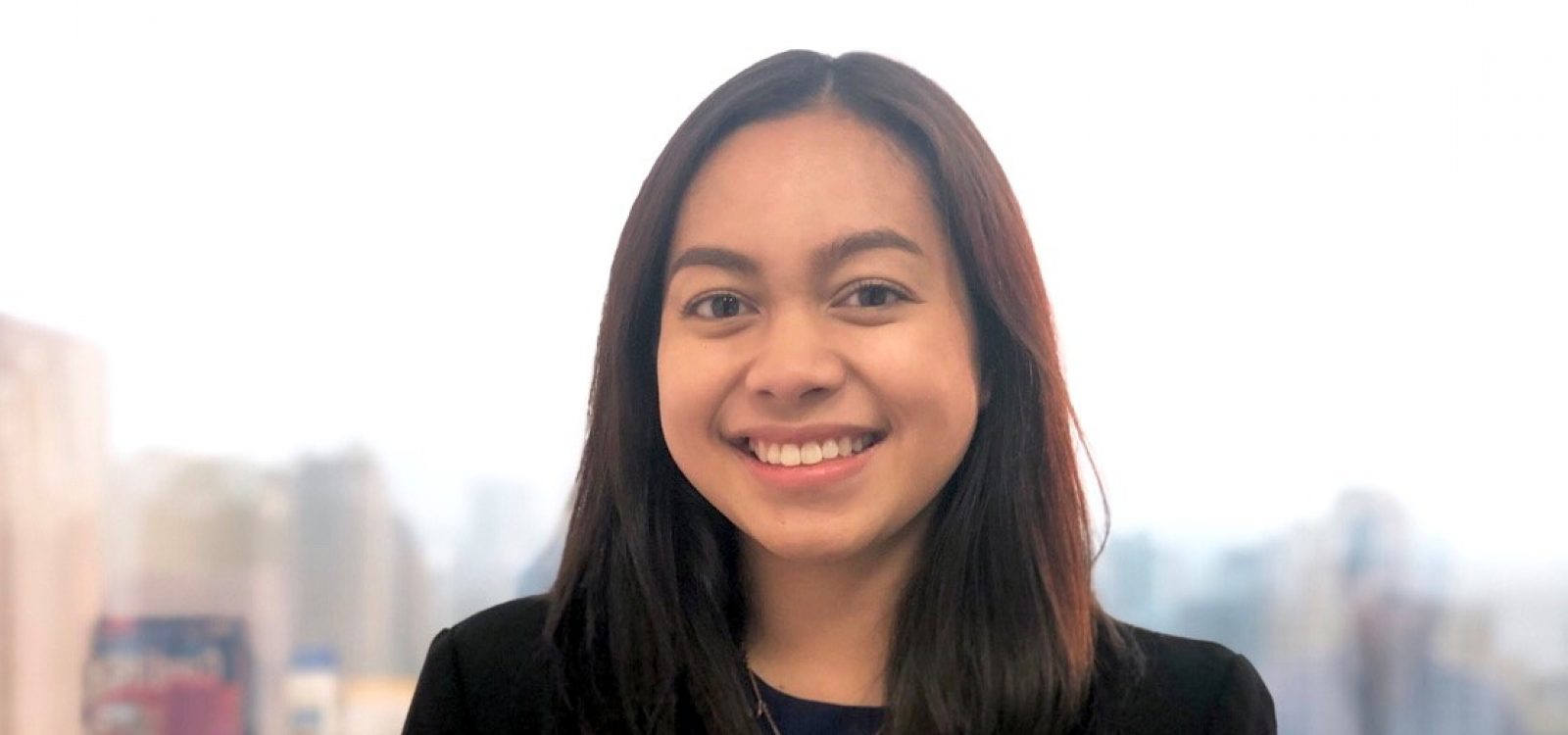
I am an Actuary – August 2019
Following the July Professionalism Course, Martin Mulcare spoke to six actuaries who shared why they were proud to be an actuary and how their actuarial training has been applied in a variety of areas, solving societal problems.
Ajeng Ayu
When I was in Year 12 my father introduced me to actuarial studies, a course that was notorious for its difficulty. Feeling challenged, I decided to do actuarial studies at Monash University. Ever since I became an actuarial student, I understood that actuarial science is a discipline that can be applied to various areas of practice. After completing both Bachelor and Master’s degrees in Actuarial Studies, I took the opportunity to pursue my career in my hometown and joined the actuarial team in KPMG Indonesia.
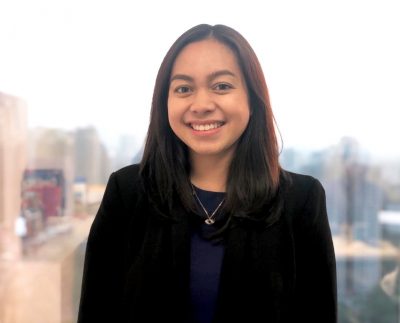
As someone who gets easily bored, I always want to do different things and learn new skills. Falling into consulting with a very dynamic environment, the experience has served as a strong foundation for my early career.
I have been heavily involved in various projects for insurance companies, such as IFRS 17 implementation, M&A support, as well as the review of valuation reserves
While I take joy in collaborating with colleagues from other countries, the other thing that makes the journey more exciting is the opportunity to work in various industries. Working under the umbrella of the financial risk management team, I have been exposed not only to traditional areas, such as life and general insurance, but also banking. These are the opportunities where I can test my actuarial modelling skills and put my knowledge into practice when involved. For example, as a credit risk modeller for IRB projects and IFRS 9 impairment models. From this journey I hope to become a better professional who can promote best practice in Indonesia, as well as a better person.
Apart from being a full-time actuarial consultant, I also enjoy scuba diving during holidays and fencing after work!
Daniel Clough
Born and bred in Christchurch, I graduated with a degree in Accounting and Finance from the University of Canterbury in 2001 and then started work at the Inland Revenue Department. It was when I was there as a Specialist Investigator focussing on Life Insurance companies, that I became exposed to some actuarial calculations that were required in the income tax returns. This was the first time I had ever heard of an actuary!
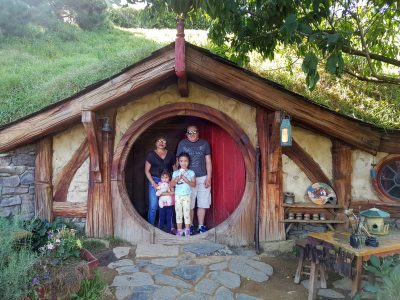
After some further research, a career in actuarial sounded both challenging and prestigious. It also seemed like a good fit with my finance background so I took the plunge and started studying.
During the time I have been studying, my wife and I have been blessed with two beautiful daughters, Sophie and Izabelle. It’s definitely a challenge balancing full time work, study, and trying to be the best dad and husband I can be. However, with their support – which I am so grateful for – I persevered. I think that’s probably the most important characteristic required for the journey to qualification. I’m not the smartest guy in the world, and I don’t think you need to be. Just keep going. If you fail along the way, just get back up and try again. If you have the passion, determination and patience to stick at it, you can do it. You just need to maintain your enthusiasm on your path to success.
Now the end is in sight. I have just attended the Professionalism Course in Melbourne and I am becoming an Associate. I only have one Part III exam to go to be a Fellow. For now, though, I’m proud and happy to say I am an Actuary.
Derwin Bong
Currently I am a director for Elebest Engineering Sdn Bhd. We are the sole distributor of KONE elevators and escalators in the state of Sarawak, Malaysia with over 300 units of equipment installed and maintained across eight cities. I oversee the business administration of our company which covers accounting, finance, HR, records, systems and legal. My work involves having an overview of the data, processes and people in our company and drilling down when necessary.
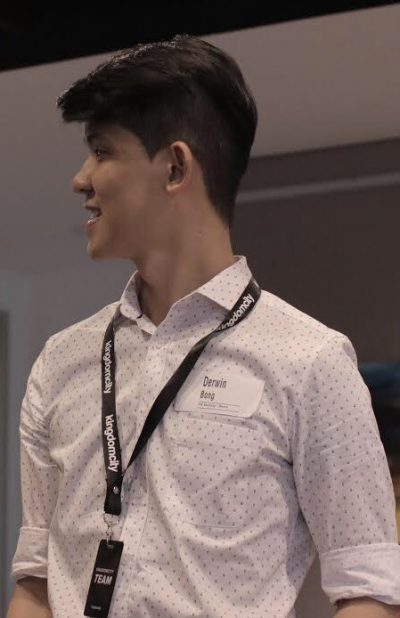
I chose to study to be an actuary because I saw it as a way to distinguish myself. During my time at Curtin University, I decided that I would not work in a traditional actuarial field. I imagined that I would end up in investment banking or property development because of my interests.
I worked in the Public Sector Commission in Perth, Western Australia, collecting and analysing public sector human resource data. I started a small business with a friend running a fitness programme for kids (that failed within a year). I then moved to Kuala Lumpur, Malaysia and worked at a church called Kingdomcity that spanned over seven countries. I was part of the global systems and database development team, before returning to my home town.
I have found that the tools gained while studying to be an actuary have given me an excellent framework to excel across these different roles. My experience has also shown me that actuaries are well positioned to be leaders in our teams, departments, and, eventually, our organisations. My encouragement to other budding actuaries would be to embrace the role that you are in wholeheartedly, have a deep conviction of why you are doing what you are doing and, finally, don’t be afraid to regularly say ‘yes’ to experiences that will expose and expand your capacity.
Holly Briffa
For as long as I can remember, I’ve known that I wanted to pursue a career involving mathematics. I appreciated how the approaches to problem-solving were structured – if your answer wasn’t correct, you could go back in an almost forensic way to identify the problem. It felt a bit like being a detective, but with numbers!
I enrolled in the Bachelor of Commerce at the University of Melbourne and wanted to take as many subjects from the Department of Mathematics and Statistics as possible. The Actuarial major allowed me to do this, so the decision to pursue this major was easy, even though I didn’t know much about the profession.
While studying, I interned with a superannuation consulting firm. However, after working part-time at a management consulting firm (Strategic Project Partners), I decided that management consulting was the path for me.
My role involves working with clients to find innovative, evidence-based solutions to their business problems.
Questions that I’ve recently tackled include: ‘Should our business build a new skyscraper in the CBD?’ and ‘What is the benefit to society of our research in neurotrauma interventions?’. I leverage actuarial techniques to model demand, simulate scenarios, quantify risk and estimate financial impact.
In management consulting, framing the questions in the right way is critical, and I believe actuaries are uniquely placed in our ability to do so.
One aspect that I particularly enjoy about management consulting is the diversity of the teams that I work with. I am often collaborating with academics, clinicians, planning and development managers, enterprise data architects, and behavioural change experts – sometimes all in one project.
Among all this diversity, I am proud to be an actuary. I think we have a lot to offer when it comes to solving some of industry’s greatest future challenges.
Jonathan Valois
What key protective factors reduce the likelihood of a child being abused? How does improving the financial security of a family also improve the health of a child?
These may not be questions that actuaries are typically asked, but I believe we can play a role in answering them.
I work for Oranga Tamariki, the NZ government agency responsible for child protection and youth justice. It also has a broader responsibility for improving the wellbeing of all children.
Actuaries fit in here through the children’s wellbeing model. This estimates the wellbeing of all NZ children, mostly via their interactions with government agencies. Applying this model, their life paths are then projected through to young adulthood. By answering questions like the ones above my team helps inform policy and operational decisions, not just for our agency but across government.
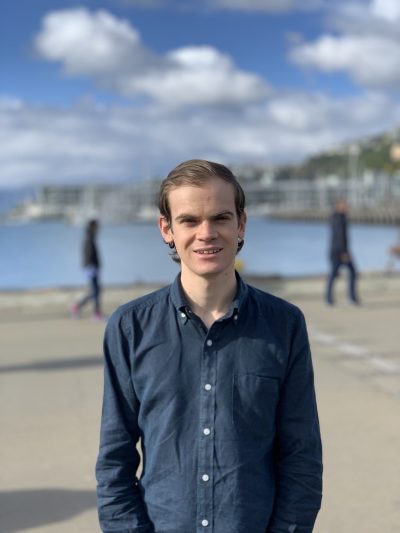
My career so far has been spent in actuarial teams working in the government social sector. I’ve always had a strong interest in social issues and I really value being able to combine this with technical skills.
Being in an advisory role, understanding the context of the organisation and the language used is really important. For example, using words like ‘cost’ and ‘liability’ with regards to children quickly loses you friends in my job.
I plan to continue with the Part III exams (a challenge when you don’t work in insurance!). Longer term I hope I can draw on my experience in the social sector, even if I transition to a more traditional actuarial role.
Michael Kaboukos
One day, when I first began working as an Actuary, I was eating a couple of cheeseburgers after a massive gym session in the Melbourne CBD with my fiancé when we got talking to another customer. He asked me what I did for work, and I replied, with part pride and part hesitation, that “I am an Actuary”. I was hesitant because the simple actuarial model in my brain had spat out a result of 99% for the statistical probability that he would respond with “what’s that?” Believe it or not, 1% isn’t always immaterial and my fiancé didn’t have to listen to me struggle to come up with a simple explanation for what exactly it is that I do – and I made it home in time to watch my beloved Liverpool smash their opposition.
So what do I do? Well, I started my career at AIA Australia at the beginning of 2017 as an Actuarial Graduate. I made the choice to take the actuarial path after studying both Actuarial Studies and Mechanical Engineering at Monash University. Since then, I’ve worked in Valuation, Actuarial Systems, Data Analytics, and I currently apply my craft in Reinsurance.
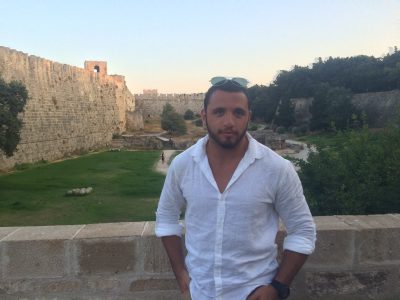
Since then, I have grown to love the actuarial profession more and more, as I see more value and potential in the skills that we have and the work that we do. I truly believe that we are capable of supporting the wider community to solve both financial and non-financial problems that can really make a difference to the world.
So, whether I’m throwing around the iron (and then eating a cheeseburger), watching my beloved Liverpool, or visiting another of the many beautiful Greek islands, I am now ready and proud to tell the next person I speak to that “I am an Actuary”.
CPD: Actuaries Institute Members can claim two CPD points for every hour of reading articles on Actuaries Digital.


